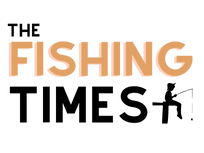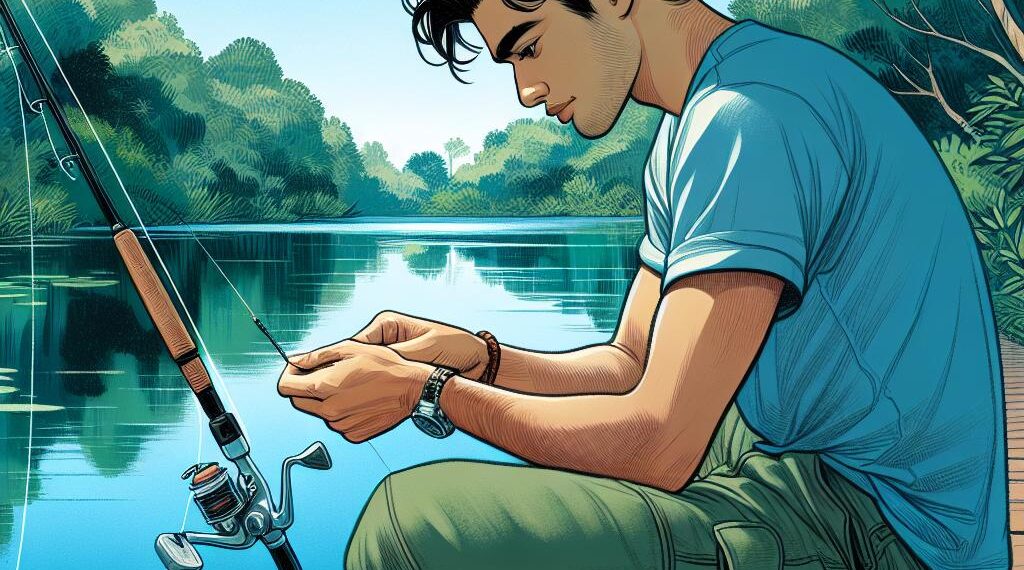Ever found yourself at the water’s edge, rod in hand, only to realise you’re not entirely sure your fishing rig is set up right? You’re not alone—loads of anglers, both newbies and seasoned fishers, face this conundrum. Did you know that the way you set up your rig can make or break your fishing success? A properly constructed rig helps you catch more fish and enjoy your day on the water. In this blog, we’ll cover the best way to set up a fishing rig, helping you refine your skills and level up your angling game. Ready to tackle those fishy challenges? Stick around!
How Do You Set Up the Perfect Fishing Rig?
Setting up a fishing rig involves organising your line, hook, and bait in a way that maximises your chances of catching fish. It’s a fundamental skill in angling that has evolved as fishermen have experimented with various techniques and localised approaches, adapting to specific water conditions and fish species. Knowing how to set up a fishing rig properly is essential because it directly affects your success rate. It can make the difference between a productive day on the water and coming home empty-handed. With the right rig, you can target different fish effectively, react to changing conditions, and enjoy a smoother, more engaging fishing experience. Understanding this enhances your fishing enjoyment and boosts confidence.Why Setting Up a Fishing Rig Matters
Fishing is more than just catching fish; it’s an entire experience and setting up a fishing rig the best way enhances that in countless ways. Understanding how to optimise your fishing rig brings several benefits that fit seamlessly into the broader fishing lifestyle.- Firstly, knowing the best way to set up a fishing rig dramatically improves your efficiency on the water. A well-set rig means more time spent casting, reeling, and enjoying the scenic surroundings rather than fumbling with gear.
- Secondly, it’s a way to hone your skills. Mastering the perfect rig instills a sense of confidence and pride, lending itself to more enjoyable and satisfying fishing trips.
- Another benefit ties back to safety. Proper setup ensures that you and those around you are less likely to face accidents, such as hooks snagging where they shouldn’t.
- Moreover, embracing the best rigging techniques supports conservation efforts, as it minimizes unintended catch and reduces the risk of harming fish populations.
- Lastly, engaging with rig setup cultivates patience and mindfulness. It’s a chance to slow down, focus, and fully immerse yourself in the peaceful world of angling, which is at the heart of an authentic outdoor lifestyle.
Setting Up Your Fishing Rig: A Simple Step-by-Step Guide
Setting up a fishing rig might seem daunting, but let’s break it down. 1. Select the Right Rig Type: Before you start, choose the right rig for your fishing scenario. A simple ledger rig is excellent for beginners. Avoid the mistake of overcomplicating your setup; simplicity is often more effective. 2. Gather Your Gear: Pick a suitable main line and hook, ensuring they’re strong enough for your target fish. Newcomers often skip this step, but quality gear prevents line breaks and lost catches. 3. Tie Knots Securely: Use a reliable knot, like the Palomar, to join your hook to the line. Take your time learning: loose knots can result in lost fish. Practise until knots are secure, every time. 4. Add Necessary Weights and Floats: Attach weights to sink your bait and floats to maintain the correct depth. Experiment with different weights until you find what works; avoid too much weight as it could spook fish. Follow these steps, practice regularly, and you’ll become more confident in setting up your rig. Happy fishing!Setting Up Your Ultimate Fishing Gear
If you’re eager to improve your fishing skills, you’ve landed at the right place! Fishing doesn’t have to be overly complicated. It can become a seamless adventure if you’re equipped with the right techniques, gear, and a sense of exploration. Whether you’re a novice angler or you’ve been casting lines for years, there’s always room to grow and learn. Let’s dive into some handy insights to make your angling experiences more enriching. Now, setting up your fishing rig is crucial because it’s the foundation of your fishing success. You know, have you ever felt frustrated because the fish just aren’t biting? In many cases, it’s how your rig plays into their natural habitat. If you’re looking to understand the best ways to set up a fishing rig, let’s simplify things. Essentially, it involves the line, the hook, a weight, and often a float. Each component must play its part well, but it’s crucial to select the right gear depending on the type of fish, the fishing location, and the conditions you plan to fish in. For instance, lighter tackle is perfect for smaller fish, while something heftier is needed for the bigger ones. When it comes to gear, keep in mind that quality matters. Yes, it can be tempting to grab budget-friendly items immediately, but understanding their quality can make all the difference in the long run. Shimano and Daiwa are standout brands that many experienced anglers swear by for reels. Their durability, ease of use, and reliability can indeed enhance your fishing experience. Besides, splurging a little on your reels might save you money later on replacing broken gear. Now, let’s delve into various angling techniques because this is where the thrill of fishing truly lies. Mastering different techniques lets you target diverse fish species under varied conditions. For instance, if you’re fishing in a river, drift fishing is incredibly valuable. It involves casting your line upstream and letting it drift down naturally, which imitates the movement of food in the water, making it more enticing for fish. Another technique to consider is jigging, which works well in both saltwater and freshwater. This involves attaching bait to a jig and moving it up and down the water column. It’s interactive and lets you engage with the fish more directly. And, how can we overlook topwater fishing? Talk about an adrenaline rush! It involves using lures that float on the surface, imitating prey like frogs or insects, which triggers predatory fish to strike. The key here is patience and a bit of practice. But once you get that explosive hit, trust me, you’ll find it hard to go back! Let’s not forget the treasures outdoor fishing experiences bring. Travelling to fishing locations can add a whole new dimension to your angling passion. From the Scottish Highlands to the serene lakes of the Lake District, the UK offers a plethora of places to cast your line. Visiting these new locations doesn’t just break the routine; it can rekindle your love for fishing by introducing you to entirely different ecosystems and fish species. Planning these fishing trips might appear daunting, but a few travel tips can make it breezy. First up, research the local fishing regulations. You don’t want any unpleasant surprises or fines. Additionally, checking the weather plays a huge role, not just for safety, but because certain species are more active in specific weather conditions. Hit up local tackle shops too. They’re goldmines for local insights, like which bait is currently performing best or hidden gems in the area. But what about packing? Simplifying your gear can be a game-changer. It’s all about being light but effective. Carrying a multi-tool can save your skin on countless occasions—whether fixing gear or making quick adjustments to your rig. Packing snacks and drinks is crucial; fishing is hungry work, after all. Oh, and always bring layers of clothing. The British weather is famously unpredictable, as you know. Staying motivated is pivotal to becoming a better angler. We all face slumps, especially after a series of fish-less days. But it’s crucial to see each outing as a learning opportunity. Join a local fishing club or online community. Sharing experiences and learning from others accelerates your growth and keeps your spirit high. Ultimately, fishing is about embracing the journey and everything that comes with it—from the serene early mornings on the water to the camaraderie with fellow anglers. So, relish each moment, for each cast holds endless learning experiences. And, hey, whether you land a giant catch or simply enjoy a peaceful day by the water, you’re winning in the wonderful world of fishing. Cheers to your next adventure!| Gear | Recommended Items | Skill Level | Budget |
|---|---|---|---|
| Reels | Shimano Stradic | Beginner to Expert | Mid to High |
| Reels | Daiwa BG | Intermediate to Expert | Mid |
| Rods | Ugly Stik Elite | Beginner to Intermediate | Low to Mid |
| Lines | Berkley Trilene XL | Beginner | Low |
Real-Life Tips for Crafting the Perfect Fishing Rig
A few months back, I went fishing with my mate Dave, who’s a seasoned angler. We were prepping for a day on the water, and Dave insisted on showing me the “best way to set up a fishing rig.” To be honest, I didn’t think much of it at first—I’d been fishing since I was a lad, after all. But as he expertly assembled his tackle, explaining how the right combination of weights, hooks, and knots can enhance bait presentation, I realized I’d been missing a trick. It was like a light bulb moment! That day, our catch rate soared. We hooked bass and trout with ease, each cast more successful than the last. What I learned was more than just a nifty rigging technique—it was the importance of precision and detail. A well-set rig can make all the difference, allowing you to present your bait naturally and enticingly to fish. This experience truly proved that sometimes, taking a step back and revisiting the basics can revolutionise your game. Fishing isn’t just luck; it’s a craft.Sustainable Angling: Protecting Nature Through Your Fishing Rig
Fishing with sustainability in mind ensures both the joy of angling and the health of our ecosystems. Here are some responsible tips to keep in mind when setting up a fishing rig:- Choose eco-friendly gear: Opt for biodegradable hooks and lead-free weights to minimize environmental impact.
- Use circle hooks: They’re designed to catch fish by the mouth, reducing injury and increasing the chance of fish survival upon release.
- Practice catch and release: Especially with vulnerable species, focus on preserving fish populations for the future.
- Follow local guidelines: Respect size and bag limits, which help maintain balanced fish populations within a habitat.
- Avoid sensitive areas: Stay clear of fragile ecosystems like coral reefs or spawning grounds where fish are vital for reproduction.
- Minimize discard: Use bait and techniques that reduce the likelihood of catching unwanted species.
- Clean up after yourself: Always dispose of waste properly, including fishing line, which can be hazardous to wildlife.
- Know your surroundings: Be aware of non-targeted species in the water and adjust your angling technique accordingly.












